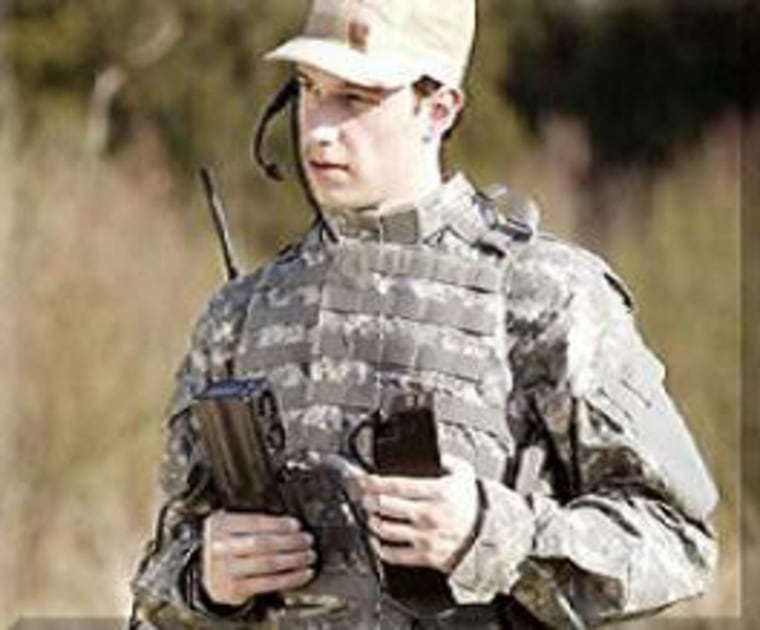The Pentagon has given a U.S.-German venture the $1 million top prize in a competition for portable power systems.
The winning product, created by Delaware-based DuPont and Germany's SFC Smart Fuel Cell, is already being sold to the U.S. Army for limited use in the field.
Almost 170 teams competed for the Wearable Power Prize, a Pentagon-sponsored contest to invent a better power system.
Troops who use electronic devices such as night-vision goggles and GPS units have to carry batteries that can add 20 pounds (9 kilograms) to their loads. The military created the contest to find a system that produces more power with less weight — light enough that soldiers can wear it on their vests.
The top prize was won by the M-25 portable fuel cell, which combines DuPont's direct-methanol fuel cell technology with SFC's fuel cell and battery system.
The second prize of $500,000 went to Adaptive Materials Inc. of Ann Arbor, Mich. The third prize of $250,000 went to the Jenny 600S fuel cell system, produced by SFC in partnership with Capitol Connections of Middleburg, Va.
All three systems were required to provide 20 watts of average electric power for 96 hours, meet a brief peak power demand of up to 200 watts, and weigh no more than 8.8 pounds (4 kilograms), or less than half the weight of the typical battery pack. For the purposes of the test, the systems were attached to a standard military vest.
The final round of testing ended Saturday at the Marine Corps Air Ground Combat Center in Twentynine Palms, Calif.
The M-25 won by virtue of its light weight — 3.7621 kilograms, compared with Adaptive Materials' 3.7901-kilogram system and the 3.865-kilogram Jenny 600S.
"The winners, and really all the teams that competed, have moved wearable power technology forward," William Rees Jr., the Defense Department's deputy under secretary for defense laboratories and basic sciences, said Monday in a statement announcing the winners. "But the real winners from this competition are our ground warfighters, as these systems show great promise to reduce the weight of batteries they have to carry while performing their critical missions."
